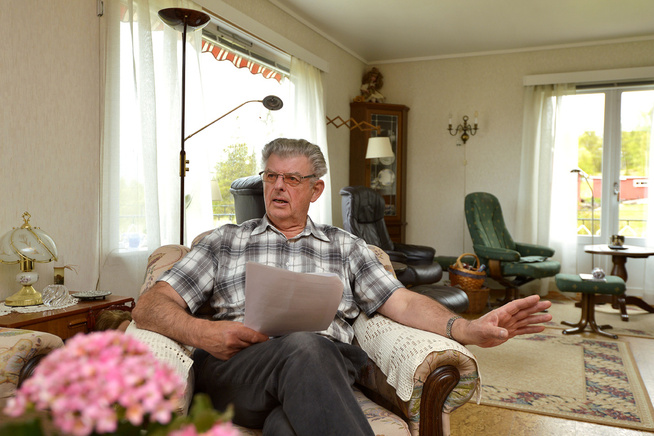 |
| Odd Fagerjord spokesman for the Læstadian church in Norway. Photo: TERJE MORTENSEN, VG PHOTO: TERJE MORTENSEN , VG |
The Stanford victim's statement to her attacker has been shared widely online; if you haven't read it, I encourage you to do so. Given what we know, who among us would recommend a victim pursue justice through the courts?
I don't know what the court system is like in Norway, but in the village of Tysford (a largely-Firstborn Laestadian community), a series of articles on sexual abuse speaks to a similar desire to stop the insanity. The victims' stories are so familiar, and heartbreaking.
Will a public conversation help Tysford's Laestadian leaders reconsider their role in interviewing victims and reporting crimes?
Will the Stanford case help us consider how we ourselves contribute to rape culture?
Or will we shrug and say "it happens everywhere."
That sexual abuse is universal does not mean it is insoluble. That we are not abusers ourselves does not absolve us of a responsibility to prevent abuse.
We can take a clue from the two Swedish bicyclists, Peter and Carl-Fredrik, on the Stanford campus that day. They did not look the other way, they questioned what was going on, they prevented the attacker from escaping, they did not accept his explanation, they did not suggest he consult a spiritual authority. They didn't debate among themselves whether it was legal to force oneself on someone else. They called the police.
In my view Laestadians are conditioned from birth to repress and/or avoid their true feelings and emotions or to expose the truth about criminal behavior. There seems to be three unwritten ways for a guilty party to avoid criminal accountability. Confession of sins is the first avenue of truth suppression within Laestadian circles, especially when some one is trying to avoid a prison sentence. The second avenue to avoid criminal charges is the shame on the victim's part about having their name smeared and maligned in church gossip circles. A third more insidious way of avoiding accountability is based on the perpetrators perceived socio-economic standing within the church. Just as the secular 'world' meets out punishment differently based on one's standing in society, so too does one's standing in local Laestadian circles influence the possibilities of punishment if confession and shaming the victim were not enough. It usually takes a very large infraction of the law in order to goad Laestadians into pursuing legal action against a member as problem avoidance and suppression are the norms of the culture to start with. I read recent news report about a large Laestadian Ponzi Scheme where church members life savings were wiped out. The end result showed that victims went or are going through the three stages-some thought confession was enough, others were too ashamed to go public and still others did not want to do anything based on the standing of the alleged perpetrator. Old AP
ReplyDelete